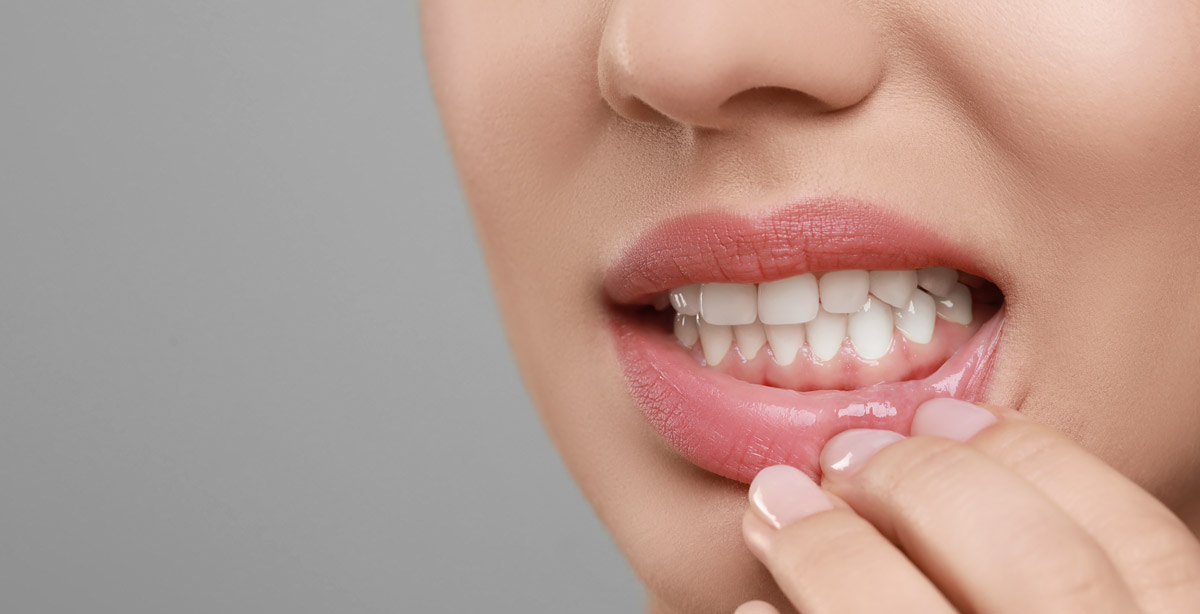Maintaining healthy teeth and gums is essential for overall oral health. While most people focus on keeping their teeth clean, the health of your gums plays a crucial role in protecting your smile and preventing serious dental problems, such as gum disease, tooth loss, and tooth decay. Healthy gums are not only key to your mouth’s appearance but also to your general health.
In this blog post, we’ll discuss the signs of healthy gums and how you can ensure that they stay in top condition through your daily oral care routine.
What healthy gums look like
Having healthy gums is vital to maintaining your smile. So, what should you look for when checking your gums?
Pink and firm gums
One of the primary signs of healthy gums is their colour and firmness. Healthy gums are typically a pale pink colour, although this may vary slightly depending on your skin tone. They should feel firm to the touch and not look puffy or swollen. If your gums are bright red or appear inflamed, this could suggest diseased gum tissue.
No bleeding or swelling
When you brush your teeth or floss, your gums should not bleed. Healthy gums are resistant to bleeding and should not appear swollen or puffy.
Gums that don’t recede
Another indicator of healthy gums is that they fit snugly around your teeth with no noticeable recession. Receding gums, which expose the teeth roots, are a common sign of gum disease. This can lead to tooth sensitivity, an unpleasant taste in your mouth, and even tooth loss if the condition is not addressed.
Signs of gum health during brushing
Your oral care routine is an excellent time to assess the health of your gums. Brushing your teeth effectively with fluoride toothpaste is the first line of defence against plaque build-up and can also help prevent gum disease.
Gently massaging your gums
Brushing your teeth is not just about cleaning the teeth but also about promoting healthy gums. When brushing, use a soft-bristled toothbrush and gently massage the gum line to stimulate blood flow. This action helps maintain gum health by encouraging circulation, which can reduce the risk of gum infection. Avoid brushing too hard, as this can irritate the gum tissue.
Using the right toothbrush for healthy gums
A good toothbrush is essential for keeping your gums healthy. A soft-bristled toothbrush gives you the best chance of protecting the delicate gum tissue. Hard bristles can cause gum recession and damage the enamel of your teeth.
Choose a toothbrush that fits comfortably in your mouth and allows you to reach all areas of your teeth and gums easily. If you’re unsure about the best toothbrush for you, consult your dentist or dental hygienist.
No blood on your toothbrush
After brushing your teeth, check your toothbrush for any blood. If you see blood, it could be a sign of gum disease, such as gingivitis. Bleeding gums are one of the most common symptoms of gum disease.
It’s important to address this issue promptly, as untreated gum disease can lead to more serious conditions.
What is gum disease?
Gum disease, also known as periodontal disease, is a common oral health issue that affects the gums and supporting structures of the teeth.
It starts with inflammation of the gums in the early stages, often due to plaque and tartar build-up on the teeth. If left untreated, gum disease can progress to more serious forms, leading to significant damage to your gums and even tooth loss.
Understanding what gum disease is, its causes, and the potential consequences of not seeking the appropriate dental treatments for it is crucial for good oral health.
Common causes
Gum disease is primarily caused by poor oral hygiene that encourages plaque build-up around the gum line. Plaque is a sticky film of bacteria that forms on your teeth and gums. If not removed through regular brushing and flossing, plaque can harden into tartar, which is much harder to remove and can irritate the gums.
Some common causes of gum disease include:
- Poor oral hygiene: Not brushing your teeth twice a day or flossing regularly allows plaque to build up and irritate the gums.
- Smoking or chewing tobacco: Smoking weakens your immune system and makes it harder for your gums to heal from any damage.
- Hormonal changes: Hormonal changes during pregnancy, menstruation, and menopause can make gums more sensitive and prone to inflammation.
- Certain medications: Medications that reduce saliva flow or cause dry mouth can contribute to the development of gum disease, as saliva helps neutralise acids and wash away food particles.
- Health conditions: Certain health conditions, such as diabetes, can increase the risk of gum disease. Conditions that weaken the immune system, like HIV/AIDS, also make it more difficult for the body to fight infections, including gum infections.
- Genetics: Some people are more genetically predisposed to developing gum disease, even with good oral care habits.
What happens if you don’t get it treated?
If gum disease is left untreated, it can progress through several stages, each with more serious consequences for your gums and teeth.
Early gum disease (Gingivitis): This is the most mild gum disease and is usually reversible with proper oral hygiene. It causes redness, swelling, and occasional bleeding of the gums when brushing or flossing.
Advanced gum disease (Periodontitis): If gingivitis progresses, it can develop into periodontitis, a more severe form of gum disease. This condition causes the gums to pull away from the teeth, forming pockets where bacteria can thrive. As the infection spreads, it can damage the bone supporting your teeth, leading to loose teeth.
Tooth loss: In the most severe cases, untreated gum disease can result in tooth loss. As the infection spreads and destroys the gum tissue and bone, the teeth may become loose and eventually fall out. The loss of teeth is a serious consequence of advanced gum disease, and it can affect your ability to eat, speak, and smile confidently.
Other health issues: Gum disease is also linked to several other health conditions. Studies have shown that people with gum disease are at a higher risk for heart disease, diabetes, and stroke. The bacteria from an infection in the gums can enter the bloodstream, spreading to other parts of the body and contributing to inflammation and other health complications.
In addition to the risk of tooth loss and overall health problems, untreated gum disease can also result in chronic bad breath (halitosis) or an unpleasant taste in your mouth, further affecting your confidence and well-being.
The good news is that early detection and treatment from a dentist can help prevent these severe consequences and restore your gum health.
When to see a dentist
Regular check-ups with dental professionals are crucial for maintaining healthy gums. A dentist, dental hygienist, or gum specialist can assess the health of your gums and identify any early signs of gum disease or other oral health problems.
You’ve spotted the early signs of gum disease
Gum disease typically starts with gingivitis, a mild form of gum disease that can be reversed with proper treatment and good oral hygiene. Early gum disease symptoms include red, swollen gums, and mild bleeding when brushing or flossing.
If you notice these signs, it’s important to act quickly to prevent the condition from progressing to more severe forms, such as periodontitis or advanced periodontitis.
If you experience pain or bleeding
Pain, tenderness, and bleeding gums are warning signs that shouldn’t be ignored. If you experience any of these symptoms regularly, it’s essential to visit a dentist as soon as possible.
Left untreated, gum disease can lead to more serious health problems, including tooth loss, gum recession, and infection that may spread to other areas of your body, including the heart.
It’s time for your regular dental check-up
Visiting a dentist for regular check-ups is one of the best ways to ensure your gums stay healthy. During your check-up, the dentist or dental hygienist will examine your gums for signs of gum disease, remove plaque build-up, and provide professional cleanings.
Regular check-ups can help detect early gum disease symptoms and prevent the need for more invasive dental treatments down the line.
Come to Fulham Road Dental for expert gum care and advice
At Fulham Road Dental, we know how crucial healthy gums are for your overall oral health. Gum disease can lead to tooth loss, bad breath, and affect your general health if left untreated. Our team is dedicated to helping you prevent and treat gum disease with expert care.
We offer a range of treatments for all stages of gum disease, from early intervention to advanced periodontal care. Our experienced team will work with you to create a personalised plan to keep your gums healthy and your smile shining.
If you’re noticing the early signs of gum disease or it’s time for a check-up, we’re here to help. We use the latest techniques and technology to provide the best treatment, preventing gum issues before they become serious.
Book an appointment at Fulham Road Dental today and let us help you keep your gums healthy and your smile confident.



